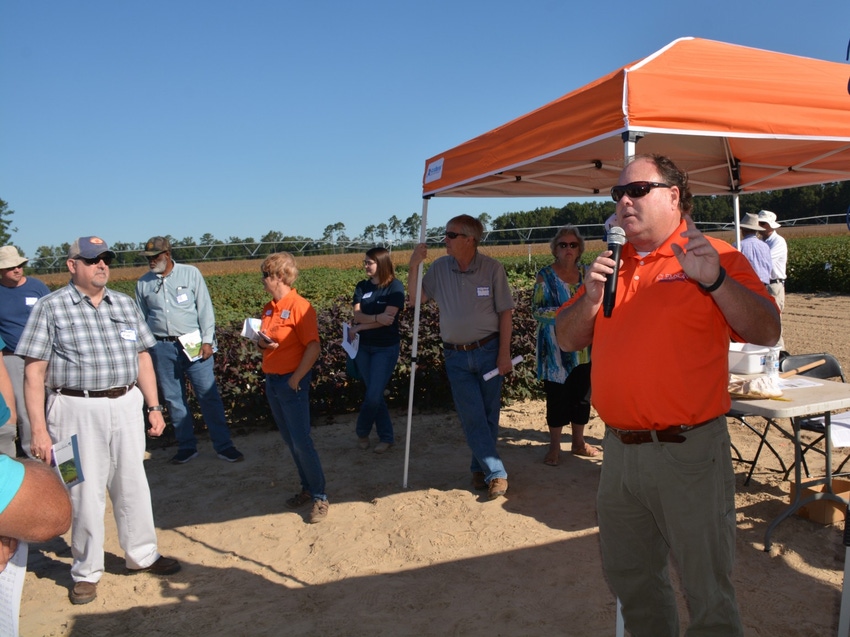
While the 2018 farm bill totally legalized industrial hemp production across the country, USDA hasn't yet released regulations for it.
Speaking at the Pee Dee Research and Extension Center Field Day in Darlington, S.C., Aug. 29, David DeWitt, Clemson University Extension agronomy agent and statewide coordinator for industrial hemp in South Carolina, said such things as banking and insurance for hemp production are lagging behind as farmers await USDA regulations.
“Each state has to get new land approved for industrial hemp, so those of you who are interested in growing the crop in 2020 are going to have to wait,” DeWitt said at the field day. “The South Carolina Department of Agriculture handles all the permitting and regulations of this program. We hope to have applications available shortly after USDA approves the state plan, probably by the end of December or January at the earliest.”
DeWitt said it is expected the permitting process will be relatively unlimited, which should mean growers just need to complete an application, meet some basic qualifications, clear background checks and provide UPS (universal polar stereographic) coordinates for where they will plant their industrial hemp crop.
For this year, DeWitt said the South Carolina Department of Agriculture permitted 113 industrial hemp growers across the state. He pegs total statewide production at 2,000 acres.
DeWitt said all the Clemson research stations have industrial hemp projects focusing on such topics as varieties, the use of plastic versus bare ground, fertility and entomology. “We don’t yet have a lot of data. The biggest thing we have is what we learned last year (the first year hemp could be grown in South Carolina),” DeWitt said.
Last year, Clemson worked with 12 farmers who were licensed to grow industrial hemp in South Carolina. An important job now is working to get a budget for hemp production in the state. Dr. Nathan Smith, Clemson Extension economist, is working on that.
“All we know right now is what it costs to grow. It’s a wide range, depending on how you source your plants, but usually about $12,000 per acre. The returns are unknown at the moment,” DeWitt said, noting that production costs ranged from a low of $8,000 to a high of $20,000.
DeWitt points out that of the total of 20 growers who commercially produced industrial hemp in 2018, only eight have been fully paid, although payment plans are being worked out. He also noted that industrial hemp is a crop that can’t be insured or approved for loans. (However, the USDA Risk Management Agency is making changes by offering hemp coverage under WFRP for the 2020 crop year. To be eligible, among other requirements, a hemp producer must comply with applicable state, tribal or federal regulations for hemp production and have a contract for the purchase of the insured industrial hemp.)
Going forward, DeWitt believes payment issues for industrial hemp should be in better shape since there are 15 registered industrial hemp processors in South Carolina, many who appear to be well funded.
“I am hoping payments won’t be an issue as we start to gather the 2019 crop,” DeWitt said
About the Author(s)
You May Also Like






